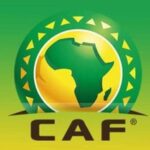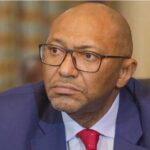The Confédération Africaine de Football (CAF) has delayed the official publication of the final candidate list for its upcoming Executive Committee elections, following multiple legal challenges lodged at the Court of Arbitration for Sport (CAS) by disqualified officials.
The elections, scheduled for next month in Egypt, have been thrown into uncertainty as several high-profile figures, including Cameroon FA president Samuel Eto’o, Congo’s Jean-Guy Blaise Mayolas, and former Botswana FA chief MacLean Letshwiti, have taken their disqualifications to CAS in an attempt to overturn CAF’s rulings.
CAF had been expected to release the final list of candidates this week, but ongoing legal disputes have forced the governing body to delay the process, leading to speculation over whether the elections could be disrupted.
Why Are Officials Challenging CAF’s Decision?
The CAF Governance and Ethics Committee disqualified several candidates on various grounds, citing violations of governance standards, ethics breaches, and eligibility criteria.
Samuel Eto’o was barred from contesting due to his partnership with betting company 1xBet, which violates FIFA regulations. His 22-month suspended sentence for tax fraud in Spain (2022) was also cited.
Jean-Guy Blaise Mayolas was excluded because of a FIFA-imposed six-month ban in 2015, which CAF ruled made him ineligible for office.
MacLean Letshwiti, the former Botswana FA president, was ruled ineligible after his own federation refused to endorse him—a similar situation to that of CAF Vice President Seidou Mbombo Njoya, who has also been sidelined.
The disqualified candidates have argued that the process is unfair, pointing out that other officials with questionable records are being allowed to contest even though no evidence has been provided to back the claims.
However, CAF’s refusal to release the names of the approved contestants for both the Executive Committee and FIFA Council positions has sparked concerns about the fairness in the process.
“CAF’s ethics committee is being selective in its application of the rules,” said a source close to one of the banned officials. “This raises serious concerns about whether the elections are being manipulated.”
CAS Orders CAF to Respond to Appeals
In a significant development, CAS has officially requested CAF to respond to the appeals filed by the banned officials.
Reports suggest that if CAS rules in favour of any of the appellants, CAF may be forced to revise its final list of candidates, potentially reshaping the dynamics of the upcoming elections.
CAF received an official letter from CAS recently, instructing them to hear appeals and give explanations for the exclusions.
“CAF now finds itself in a legal battle that could impact the integrity of the elections,” the official noted.
“If CAS rules in favour of the disqualified candidates, the governing body will have to adjust its final list or risk further legal consequences.”
This development delays the election process and raises questions about CAF’s governance policies, especially after recent attempts to clean up African football administration.
Growing Political Tensions Within CAF
Beyond the legal battles, the CAF elections have exposed deep political divisions within the governing body.
One of the most significant internal battles is the fallout between Samuel Eto’o and Seidou Mbombo Njoya, the current CAF Vice President and former Cameroon FA president.
CAF rules state that a country cannot endorse two candidates for an Executive Committee position. FECAFOOT (the Cameroon FA) chose to back Eto’o instead of Mbombo Njoya, leaving the CAF Vice President politically stranded—a situation similar to that of Letshwiti in Botswana, who was blocked from contesting after his FA refused to endorse him.
“These elections are not just about football—they are a power struggle for control over African football,” a CAF insider revealed.
With CAF president Patrice Motsepe watching closely, the ongoing legal battles could reshape the future leadership of African football’s governing body.
What Happens Next?
CAF now awaits a formal ruling from CAS, which will determine whether the disqualified officials will be reinstated or permanently removed from the election race.
The elections remain scheduled for March, but the delayed publication of candidates raises concerns that the process could be pushed back if legal battles drag on.
For now, CAF remains under pressure to ensure transparency, as stakeholders, football federations, and observers closely monitor how the election process unfolds.
“These elections are the most controversial CAF has seen in years,” noted a football governance expert. “The outcome of the CAS cases will shape the future of African football leadership.”
With time running out before the elections, the coming weeks will be crucial in determining whether CAF can proceed with its planned timeline—or if legal rulings will force a major shakeup in African football’s governance structure.











